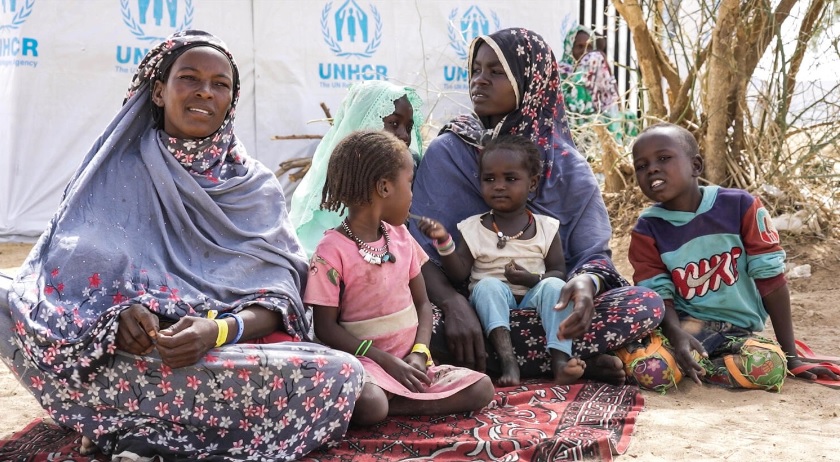
United Nations Anticipates Large Influx of Sudanese Refugees into Chad
moatinoon
Despite almost a year passing since the ongoing war in Sudan, Sudanese individuals continue to flow into neighboring countries. The UN Refugee Agency has announced the continued influx of Sudanese refugees into Chad and stated that it is in the process of updating the emergency plan for the situation in Sudan in anticipation of a large influx of new refugees.
In its latest periodic reports, it clarified, "Given the ongoing deterioration of the security situation in Sudan, with the resumption of fighting between various factions, the suspension of cross-border operations through the Adre border crossing, and the increase in the number of newcomers, the UNHCR and its partners have commenced updating the emergency plan for the situation in Sudan in anticipation of a large influx of new refugees."
During the past week, 2,335 individuals, constituting 673 families, crossed into Chad via the Adre border crossing, whereas in the previous week, 1,898 individuals, constituting 460 families, arrived. This marks an increase of around 500 individuals. Thus, the total number of individuals who have reached Chad so far amounts to 564,686, constituting 160,791 families, who have crossed into Chad since the beginning of the emergency. The number of arrivals during the last two and a half months reached 75,000 according to Chadian authorities.
The UN Refugee Agency attributed the continued influx of Sudanese refugees into Chad to the general lack of security, violations committed against young girls and women at night, inter-tribal violence, and the lack of food due to insecurity, as reasons for fleeing.
The pace of registration for refugees in Chad is much faster than that in Egypt, as the UNHCR managed to register 454,163 individuals, constituting 123,058 families, i.e., 80%, whereas the registration rate in Egypt remains less than 50%, despite the number of refugees there being less than in Chad.
Regarding the health conditions of refugees, the UNHCR stated that malaria, acute respiratory infections, acute watery diarrhea, and malnutrition remain the major diseases.
A total of 33,876 cases of moderate acute malnutrition and 16,310 cases of severe acute malnutrition in children aged 6 to 59 months have been treated, while 29,505 pregnant and lactating women were examined, and 3,749 cases of moderate acute malnutrition were treated.
Additionally, the UNHCR added that the screening of hepatitis E samples sent to Dakar confirmed eight positive cases. During the previous period, 1,098 cases were recorded at four refugee sites. Consequently, the Ministry of Health, with support from the World Health Organization, appointed an incident manager for the hepatitis E outbreak on March 7 for an initial period of three months to collaborate with local health authorities and address the outbreak.

